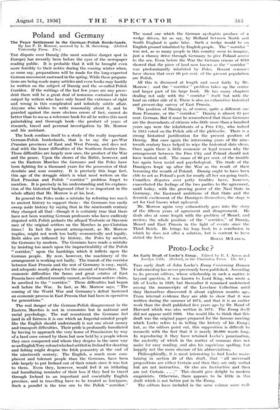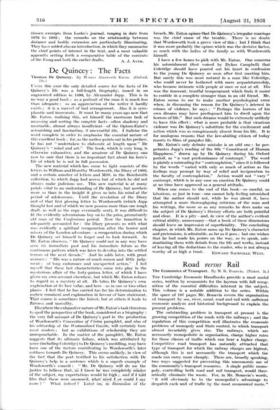Proto-Locke ?
Tins early draft of John Locke's Essay Concerning Human Understanding has never previously been published. According to its present editors, whose scholarship in such a matter is beyond question, it was known to. Lord King, who wrote a life of Locke in 1829, but thereafter it remained undetected among the manuscripts of the Lovelace Collection until they themselves discovered it about eighteen months ago. From internal evidence they are able to show that it was written during the summer of 1671, and that it is an earlier work than the draft published five years ago by Dr. Rand of Harvard which was also written in 1671. The Essay itself did not appear until 1690. One would like to think that this draft was the original paper prepared for the famous meeting which Locke refers to in telling the history of his Essay; but, as the editors point out, this supposition is difficult to reconcile with the fact that it is nearly 80,000 words long. In reproducing it they have retained Locke's punctuation, the austerity of which in the matter of commas does not make for easy reading, and also his capricious spelling, but happily not the more obscure of his abbreviations.
Philosophically, it is most interesting to find Locke main- taining in section 29 of this draft, that " all universall propositions are either Certain and then they are only verbal but are not instructive. Or else are Instructive and then are not Certain. . . ." This should give delight to modern empiricists. Otherwise, there appears to be little in this draft which is not better put in the Essay.
The editors have included in the same volume some well- chosen. -excerpts • from Locke's journal, ranging in date from 1676 to 1662 ; the remarks on the relationship between distance and bodily extension are particularly illuminating. They have added also an introduction, in which they summarise the chief points of interest in the text, and a most valuable appendix setting forth a comparative table of the contents of the Essay and both the earlier drafts. A. J. AYER.







































 Previous page
Previous page